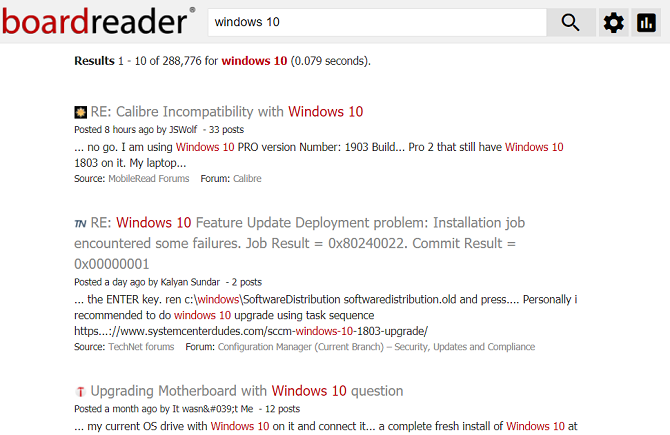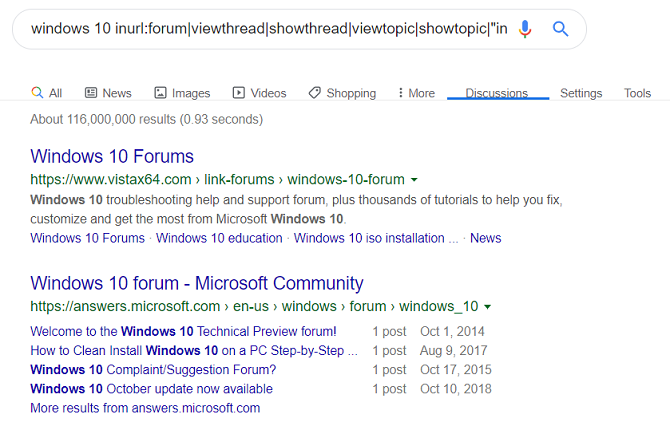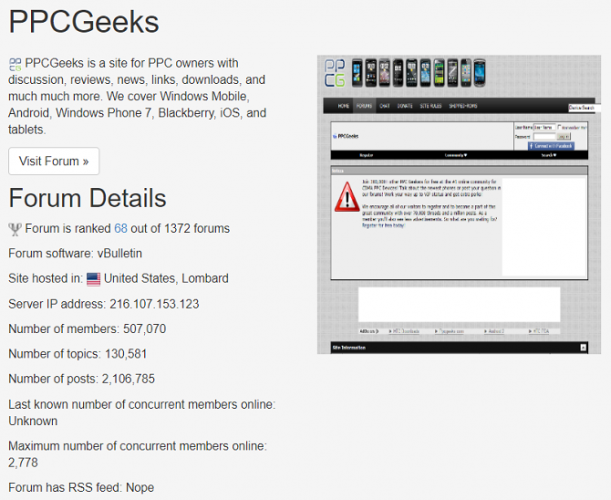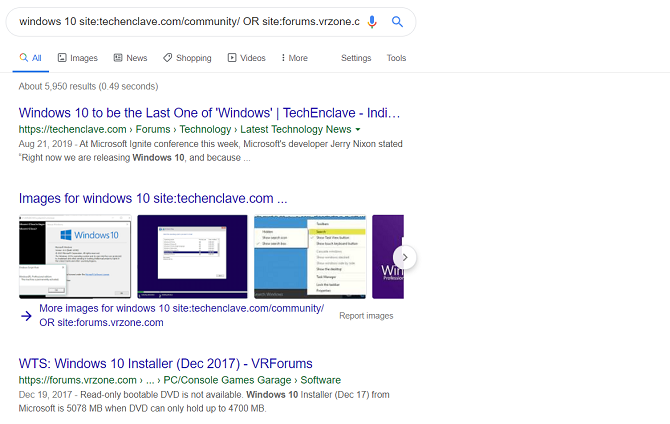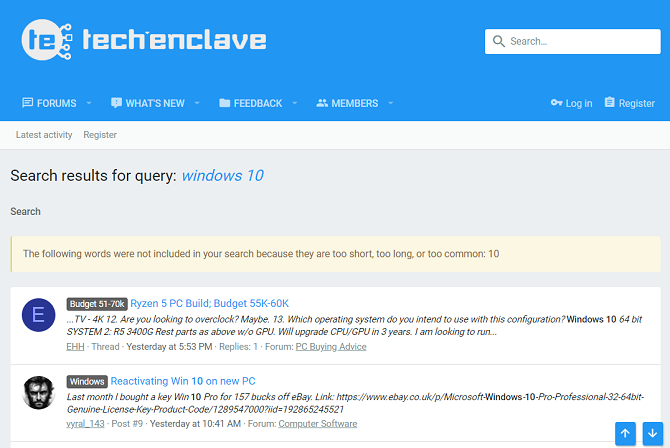Some of the best information on the web can be found hidden away deep inside forums and message boards. If you have a niche question or problem, forums might be your best chance of finding a solution.
Clearly, it's not practical to search every forum individually; you need a dedicated forum search engine that can scan thousands of communities simultaneously.
So, if you want to know how to search forums and search message boards, keep reading. We're going to look at the best message board search engines available today.
1. Boardreader
Boardreader has been around for many years and has cemented its place as one of the best forum search engines since the respective demises of the once-popular BoardTracker and Omgili.
Unfortunately, Boardreader does not provide information regarding the specific forums and message boards that are included in its results. However, after running a few unrelated searches across several topics, we can see many of the well-known big hitters are crawled.
They include Reddit, Bitcointalk, DeviantArt, Yahoo Answers, IMDb, The Student Room, The Answer Bank, Mobilism, TechNet, Tom's Hardware, BoardGameGeek, and loads more.
There's also a near-endless supply of niche forums across subjects such as fashion and beauty, gardening, gaming, celebrities, and movies and TV shows. And Boardreader even offers plenty of foreign language forums for those who can speak multiple dialects.
As you'd expect from a message board search engine, there are some filters to help you narrow your results. The filters include date, language, domain, and various Boolean parameters.
On the downside, Boardreader has faced criticism for its decision to sell its data to ad companies. Only you can decide whether you're comfortable with the trade-off.
2. Google Forum Search
You may remember that until a few years ago, Google used to offer a Discussions button when performing a search. It filtered your results so they only displayed hits from forums, message boards, and blog comments.
Sadly, the button went the same way as Google Plus and Google Inbox---but that doesn't mean you can't still use the functionality. You just need to use a third-party Chrome extension called Discussions Button for Google Search.
The extension restores the Discussions button alongside the Images, News, and Videos tabs at the top of the results page.
The extension doesn't work in the same way as the old native feature used to. Instead, it modifies your queries and adds a bunch of filters behind the scenes. They allow the tool to as closely mimic the old functionality as possible.
Discussions Button for Google Search is only available on Chrome.
Download: Discussions Button for Google Search (Free)
3. Find a Forum
Of course, in addition to trying to find relevant results in forums and message boards, you might also want to find a new forum that focuses on whatever topics you're interested in. Like the best Android forums, for example. You can then join the community and engage with other like-minded individuals.
There are lots of forum searchers out there, but we just like Find a Forum. At the time of writing, it includes more than 1,350 different forums and message boards for you to dig into.
All the forums are neatly categorized into categories.
The top 10 categories with the highest number of forums are Recreation and Hobbies (295), Games and Entertainment (141), Computers and Internet (124), Sports (114), Business and Economy (91), Health (80), Travel and Tourism (77), Family and Home (70), Music (58), and Society and Culture (47).
Find a Forum also has loads of stats about how active a forum is. For each listing, you can see the number of members, the number of topics, the number of posts, the maximum number of concurrent members online, and the last known number of concurrent members online.
You can also see what forum software the site uses, whether the forum has an RSS feed and if the website uses Google AdSense and/or sponsorship.
All these features mean that you can quickly establish whether a community is a good fit for you. You don't need to spend hours clicking aimlessly around dead message boards.
4. Create Your Own Forum Search Engine
As you might have realized, there are very slim pickings when it comes to reliable forum search engines and message board search engines.
So, why not take matters into your own hands and make your own? Or more accurately, set up Google, Bing, or one of the other mainstream search engines to work the way you want?
Remember, all major search engines work with Boolean operators. As such, you can make them search a specific set of sites and only return results from those domains.
To do so, you need to use the following Boolean term:
[Your search queries] site:ForumA.com OR site:ForumB.com OR site:ForumC.com
Obviously, this doesn't help if you don't know which forums you want to search. But if you're a member of several forums already, or if you know which forums are the most popular for your specific interests, it is an easy way to find the information you need.
To save time, perhaps you could keep a TXT file on your desktop with pre-made Boolean operators for the forums you search most frequently. You can just copy and paste them into Google as needed.
5. Search Forums Directly
Lastly, keep in mind that almost all forums and message boards offer their own native search engines.
Sometimes you'll be able to use the search tools as a guest; other times you might need to register before you can dig into the content.
Other Ways to Search the Web
We know the solutions we've presented aren't ideal. Sadly, the forum search engine choices aren't as extensive as they once were. Perhaps that's a symptom of the way the web is developing. The availability of groups on networks like Facebook and Reddit means there's an ever-decreasing demand for traditional forums and message boards. Don't let that stop you setting up your own forum, though.
So, if these five approaches haven't yielded the results you want, why not read some of our other articles about searching the web? We recommend starting with the best Google Chrome alternatives and learning how to create custom searches in Google Chrome.


